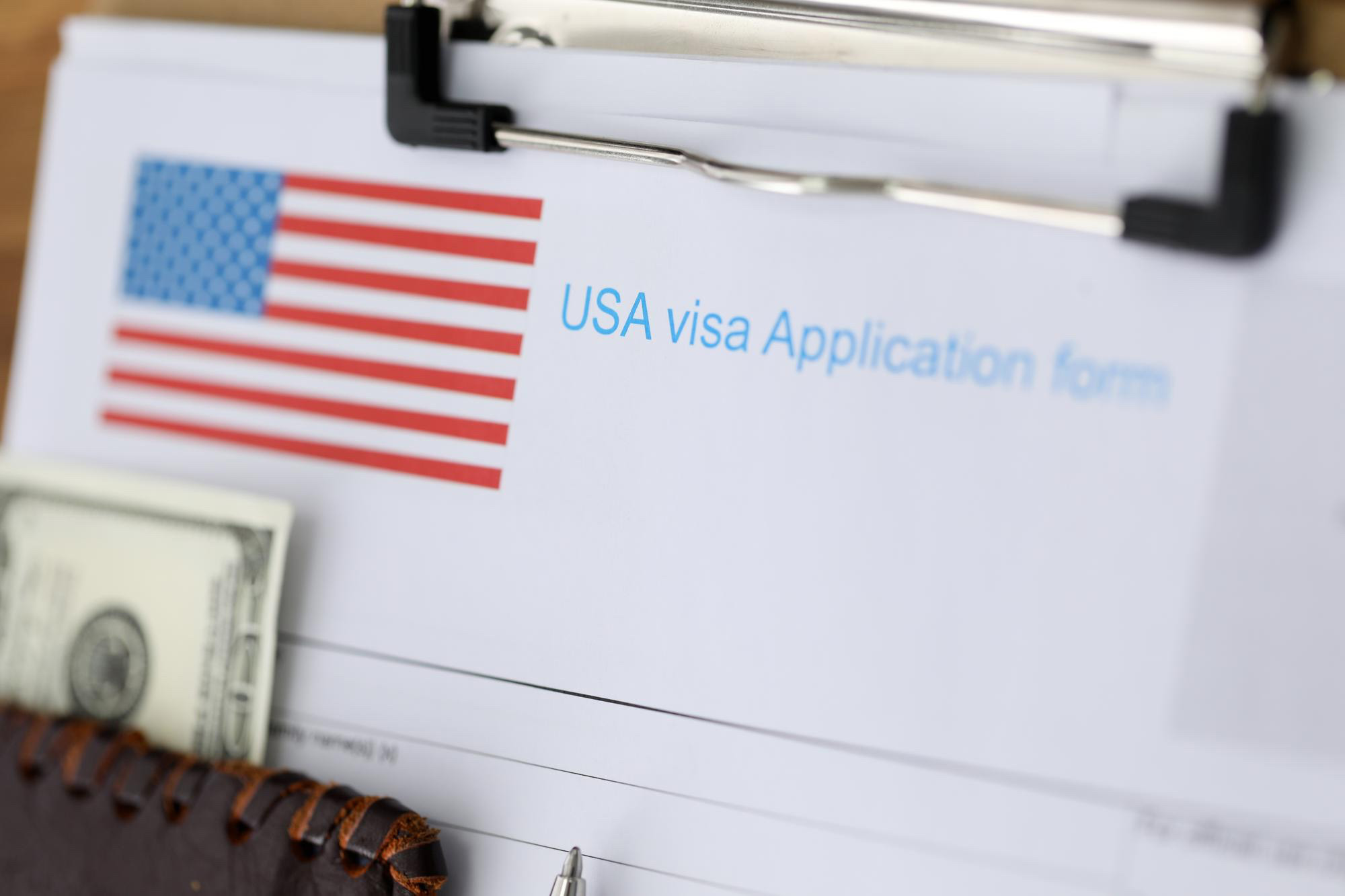The looming expiration date of your temporary protected status (TPS) or nonimmigrant visa can feel like a ticking clock, especially when navigating the complexities of U.S. immigration laws. Whether you’re a TPS beneficiary from a designated country like Venezuela or hold a nonimmigrant status such as an H-1B or E-2 visa, extending your temporary status is critical to remain lawfully admitted in the United States. At Oltarsh & Associates, a New York immigration law firm with over 60 years of experience, we’re here to ease your worries. This updated guide provides an in-depth roadmap for TPS re-registration, nonimmigrant visa extensions, and employment authorization document (EAD) renewals, helping you avoid removal proceedings and plan for long-term goals like permanent residency or U.S. citizenship. Let’s dive into the details to keep you on the right path, whether you need to extend or change status.
Understanding Temporary Protected Status (TPS)
Temporary Protected Status (TPS) is a humanitarian program administered by the Department of Homeland Security (DHS). It allows eligible nationals from TPS-designated countries to live and work in the U.S. temporarily due to unsafe conditions in their home country, such as ongoing armed conflict, natural disasters, or civil war. TPS beneficiaries receive an employment authorization document (EAD), which affords the right to work legally in the United States as well as protection from deportation during the designated period based on his or her immigration status.
Countries like Venezuela, Haiti, Sudan, and El Salvador are currently TPS-designated, as announced in Federal Register notices. For example, TPS for Venezuela under the newer registration was extended by court order through October 2, 2026, offering relief to thousands. TPS is not a path to permanent residency, but maintaining lawful status through extensions can preserve eligibility for future immigration benefits, such as naturalization. Learn more about becoming a U.S. citizen on our U.S. Citizenship page, which details the process for green card holders.
Who Qualifies for TPS?
To obtain TPS, you must meet stringent eligibility requirements set by U.S. Citizenship and Immigration Services (USCIS):
- Be a national of a TPS-designated country or a stateless person who last resided there.
- Be continuously physically present in the U.S. since the TPS designation date
- File during the initial registration period or TPS re-registration period, unless eligible for late registration due to exceptional circumstances.
- Have no disqualifying criminal convictions (e.g., felonies or multiple misdemeanors) or pose a security threat.
TPS applicants must submit Form I-821 and, if seeking work authorization, Form I-765. A fee waiver request (Form I-912) is available for those unable to pay the filing fee. USCIS will review your application for completeness and for the proper fees or a properly documented fee waiver request. If granted TPS, you’ll receive an EAD and protection from removal proceedings, allowing you to remain in the United States legally. It affords relief from removal for most foreign nationals absent criminal convictions, even with a removal order.
What Is Nonimmigrant Status?

Nonimmigrant visas permit foreign nationals to enter the U.S. for a specific purpose and authorized stay, such as work, study, or tourism. Each nonimmigrant visa category has an expiration date, typically indicated by an admission stamp in your passport or an I-94 record. Common nonimmigrant visa categories include:
- H-1B: For specialty occupation workers, such as engineers or IT professionals.
- E-2: For treaty investors launching or managing businesses.
- F-1: For international students pursuing academic programs.
- B-1/B-2: For business visitors or tourists.
For a comprehensive overview of these visas, including Canadian and Mexican temporary work visas under NAFTA, visit our Non-Immigrant Work Visas pillar page. Extending nonimmigrant status requires filing a petition with USCIS before the end date to stay lawfully admitted and avoid gaps in employment authorization.
Why Extending Temporary Status Matters
Failing to extend your TPS or nonimmigrant visa before the expiration date can have serious consequences, including loss of work authorization, accrual of unlawful presence, and potential removal proceedings. Extending your status offers:
- Continued Employment Authorization: A valid EAD ensures you can work legally.
- Protection from Deportation: TPS beneficiaries avoid removal during the designated period.
- Eligibility for Future Benefits: Maintaining lawful status preserves options like a change of status or U.S. citizenship, which grants voting rights and deportation immunity.
- Stability: Stay secure in the U.S. despite temporary conditions in your home country, such as civil war or natural disasters.
For instance, TPS Venezuela beneficiaries must re-register to maintain benefits, while H-1B holders need to extend their visa to continue their professional roles.
Eligibility Requirements for TPS Extension
To extend TPS status, you must meet specific criteria:
- Continuous Physical Presence: Reside in the U.S. since the TPS designation date for your country
- Timely Filing: Submit Form I-821 and Form I-765 (EAD renewal application) during the TPS re-registration period, as published in the Federal Register.
- Clean Record: Avoid violations of immigration laws or disqualifying criminal activity.
TPS applicants can request a fee waiver if financial hardship prevents them from paying the filing fee. If USCIS approves your application, your EAD may be automatically extended, ensuring uninterrupted work authorization. Missing the re-registration period can jeopardize your TPS status, so consult an attorney if you’re unsure about deadlines. Deadlines are impacted by changes enacted by the Administration, lawsuits filed in court, and judges’ orders.
Step-by-Step Guide to TPS Re-Registration

Re-registering for TPS involves a structured process. Follow these steps to ensure compliance:
- Review the Federal Register Notice: Check the USCIS website or Federal Register for your country’s TPS re-registration period and registration instructions. For example, Venezuela’s re-registration typically opens for 60 days annually.
- Prepare Required Forms:
- Form I-821 (Application for Temporary Protected Status).
- Form I-765 (Application for Employment Authorization), if requesting an EAD.
- Form I-912 (Request for Fee Waiver), if applicable.
- Gather Supporting Documents:
- Proof of identity (e.g., passport, birth certificate with photo ID).
- Evidence of continuous physical presence (e.g., utility bills, lease agreements, school records).
- Two passport-style photos.
- Submit to the Correct Service Center: Find mailing addresses on the USCIS website, ensuring you use the correct address for your country’s TPS program.
- Attend Biometrics Appointment: Visit an Application Support Center for biometrics collection (fingerprints, photos). All applicants must have their biometrics collected as part of the identity verification and background check process.
After submission, you’ll receive a receipt notice confirming USCIS has your application. If USCIS approves, you’ll receive an approval notice and a new EAD with an updated EAD expiration date. For assistance, contact the USCIS Contact Center at 1-800-375-5283.
Extending Nonimmigrant Visas: A Detailed Process
Extending a nonimmigrant visa requires filing a petition with USCIS before your authorized stay expires. The process varies by visa category:
- Work Visas (e.g., H-1B, E-2): File Form I-129 with supporting documents, such as a job offer or investment plan. Learn more about these visas on our Non-Immigrant Work Visas page.
- Dependents or Other Visas (e.g., B-2, F-1): File Form I-539 for extensions or status changes.
- Supporting Documents: Include your I-94, passport, visa, and evidence of continued eligibility (e.g., enrollment letter for F-1 students). For family-based visa applications, ensure you understand the Affidavit of Support process.
- Filing Fee: Fees vary, and some applications, such as I-129, have additional add-on fees; fee waivers are rare but possible in limited cases.
If your current status is not extended in time, you may need to return to your home country to obtain a new visa.
Some forms may be filed online or by mail, following the filing instructions on the USCIS website. If your EAD is linked to your visa (e.g., for H-4 dependents), renew it simultaneously to avoid disruptions in employment authorization. For complex cases, such as H-1B extensions beyond the six-year limit, consult our New York attorneys.
TPS Venezuela: 2025 Updates and Insights
TPS for Venezuela remains a lifeline for thousands, extended through March 10, 2026, per recent Federal Register notices and a court injunction. To maintain TPS status:
- Re-register during the 60-day TPS re-registration period, typically announced annually on the USCIS website.
- File Form I-821 and Form I-765 with evidence of continuous residence and physical presence since September 9, 2020 (e.g., employment records, tax returns).
- Expect an automatic extension of your EAD for up to 540 days if you file before the EAD expiration date, allowing continued work authorization.
- Procedures for extending the current EAD for individuals with TPS from Venezuela are detailed in Federal Register notices, including guidelines for re-registration and employment verification processes.
For example, Maria, a Venezuelan TPS beneficiary in New York, re-registered in 2024 and received an EAD extension, enabling her to keep her job as a nurse while her application was processed. If you’re unsure about your eligibility or deadlines, call our office at (212) 944-9420 or contact the USCIS Contact Center.
Employment Authorization: TPS and Nonimmigrant Status
An employment authorization document (EAD) is essential for legal work in the U.S.:
- TPS EAD: Automatically granted with TPS approval; renew by filing Form I-765 during the re-registration period.
- Nonimmigrant EAD: Available for dependents (e.g., H-4 spouses) or specific visa categories (e.g., F-1 students with Optional Practical Training); file Form I-765 separately.
- Automatic Extensions: If you file for EAD renewal before the expiration date, your EAD may be automatically extended for 180–540 days, depending on the program. For TPS beneficiaries, extensions are often 540 days, as seen with TPS Venezuela.
Always carry an acceptable document, such as a valid EAD or approval notice, to prove work authorization to employers. Losing work authorization due to a lapsed EAD can disrupt your livelihood, so plan ahead.
Travel Authorization for TPS Beneficiaries

TPS beneficiaries can request travel authorization to leave and return to the U.S. without losing their status, but the process requires careful planning:
- File Form I-131 (Application for Travel Document) with the filing fee ($575) or a fee waiver request.
- If USCIS approves, you’ll receive a travel document valid for a specific period.
- Upon return, U.S. Customs and Border Protection (CBP) issues an admission stamp, confirming lawful re-entry.
For example, Juan, a TPS beneficiary from Haiti, obtained travel authorization to visit family abroad and returned without issue, thanks to proper documentation. Traveling without granted travel authorization risks losing TPS status, so consult our attorneys before making plans.
Applicants should be aware that a travel ban may be enacted, impacting foreign nationals from those countries, which could make travel dangerous. New travel bans are temporarily on hold, but if a ban is enacted, Venezuela is one of the countries whose nationals may be impacted.
Common Challenges in Extending Temporary Status
Extending TPS or nonimmigrant status can present obstacles:
- Missed Deadlines: Failing to file by the deadline can lead to loss of status and work authorization.
- Incomplete Applications: Missing forms or documents may result in denials.
- Policy Shifts: Changes in TPS designations or immigration laws, such as new Federal Register notices and court decisions, can affect eligibility.
- Removal Proceedings: Overstaying your authorized stay may trigger deportation actions by Immigration and Customs Enforcement (ICE).
Our New York attorneys can help you avoid these pitfalls by ensuring your application is complete, timely, and compliant with USCIS requirements. For instance, we recently assisted a client who missed the TPS re-registration period by securing late registration approval.
The Role of the Department of Homeland Security
The Department of Homeland Security (DHS) oversees TPS and nonimmigrant visa programs through its agencies:
- USCIS: Processes TPS applications, visa extensions, and EAD renewals, ensuring compliance with immigration laws.
- CBP: Verifies lawful admission at U.S. borders and issues admission stamps.
- ICE: Manages removal proceedings for individuals who lose lawful status.
DHS announces TPS designations and extensions via Federal Register notices, which detail eligible nationals, registration periods, and temporary conditions (e.g., ongoing armed conflict or natural disasters) justifying TPS. Staying informed about these updates is crucial for TPS beneficiaries.
Monitoring Your Current Status
To track your TPS or nonimmigrant status:
- Use the USCIS Case Status Online tool on the USCIS website with your receipt notice number.
- Call the USCIS Contact Center at 1-800-375-5283 for assistance or clarification.
- Review your I-94 record or EAD for expiration dates and ensure your documents are up to date.
- Ensure you distinguish between a pending and approved form when submitting Form I-131, as this is crucial for the successful processing of your travel authorization.
Keep copies of all notices, forms, and correspondence with USCIS for your records. If your application is pending or approved, having these documents handy can help resolve employer or travel-related queries.
Handling Denials and Immigration Appeals
If USCIS denies your TPS application or visa extension, you have options:
- Administrative Appeals: File a motion to reopen or reconsider with USCIS, providing new evidence or correcting errors.
- Immigration Appeals: Request a hearing before an immigration judge through the Board of Immigration Appeals, especially for TPS denials involving complex issues.
- Judicial Review: In rare cases, seek review in federal court, particularly for legal errors in the denial process.
For example, a client whose TPS application was denied due to insufficient evidence of continuous physical presence successfully appealed with our help by submitting additional documentation. Our attorneys can assess your case and guide you through the appeals process.
Bridging Temporary Status to U.S. Citizenship

Extending TPS or nonimmigrant status is often a stepping stone to long-term immigration goals. While TPS itself doesn’t lead to permanent residency, maintaining lawful status can preserve eligibility for other pathways, such as adjustment of status or U.S. citizenship. Green card holders can apply for naturalization after five years of lawful permanent residence (or three years if married to a U.S. citizen), gaining benefits like voting rights, federal job access, and deportation immunity.
The citizenship process involves meeting continuous residence and physical presence requirements, demonstrating good moral character, and passing a civics and English test. Special cases, such as military service or marriage to a U.S. citizen, may allow earlier applications. For a detailed guide, visit our U.S. Citizenship page.
Special Considerations for TPS Beneficiaries
TPS beneficiaries face unique challenges and opportunities:
- Country-Specific Deadlines: Each TPS-designated country has its own re-registration period and end date. For example, Haiti’s TPS is extended through August 3, 2025. A number of Attorneys General have filed lawsuits against the Administration relating to its efforts to end Haiti’s TPS in an inappropriately hasty manner. August 3, 2025, is currently the end date for TPS from Haiti, but this date may be impacted by further court action.
- Transitioning Status: Some TPS beneficiaries may pursue other immigration options, such as employment-based visas. Explore these on our Non-Immigrant Work Visas page.
Working with an attorney ensures you understand your country’s TPS designation and how it fits into your broader immigration strategy.
Nonimmigrant Visa Extensions: Advanced Scenarios
Beyond standard extensions, nonimmigrant visa holders may encounter complex situations:
- H-1B Beyond Six Years: If you’re nearing the six-year H-1B limit, extensions may be possible if a labor certification or I-140 petition is pending.
- Change of Status: Transitioning from one visa type to another (e.g., F-1 to H-1B) requires careful timing to avoid gaps in status.
- Dependent Extensions: Spouses and children (e.g., H-4 dependents) must file Form I-539 concurrently with the primary visa holder’s petition.
These scenarios require meticulous planning. Our team at Oltarsh & Associates has successfully handled cases like these, ensuring clients maintain lawful status. Learn more about visa options on our Non-Immigrant Work Visas page.
Employer Responsibilities in the Immigration Process
Employers play a crucial role in the immigration process, particularly when it comes to verifying the employment authorization of their employees. When hiring new employees, employers must complete Form I-9, Employment Eligibility Verification, to ensure that the employee is authorized to work in the United States. Employers must also reverify the employment authorization of their current employees when their temporary protected status (TPS) or other work authorization expires. It is essential for employers to understand the laws and regulations surrounding employment eligibility verification, including those related to nonimmigrant visas, TPS, and other immigration statuses. Employers who fail to comply with these laws may face penalties and fines.
In the context of TPS, employers must accept the automatically extended Employment Authorization Document (EAD) as proof of employment authorization. The EAD is automatically extended for a certain period, usually 180 days, after the expiration date, allowing TPS beneficiaries to continue working while their application is being processed. Employers can verify the automatic extension of an EAD by checking the Federal Register notice or the USCIS website. It is also important for employers to note that they cannot specify which document an employee must present to prove their employment authorization and cannot reject an acceptable document.
Employers must also be aware of the different types of nonimmigrant visas and their corresponding eligibility requirements. For example, some nonimmigrant visa categories, such as F-1 and J-1, are eligible for extensions, while others, such as B-1 and H-2, are not. Employers can check the USCIS website or consult with an immigration attorney to determine the specific requirements for each nonimmigrant visa category.
Biometric Services and Supporting Documents

Biometric services are an essential part of the immigration process, particularly for applicants seeking temporary protected status (TPS) or other immigration benefits. Biometrics, such as fingerprints, are collected to conduct background checks and verify an individual’s identity. Applicants may be required to pay a biometric services fee, which is currently $85, although fee waivers are available for those who cannot afford to pay.
When applying for TPS or other immigration benefits, applicants must submit supporting documents to demonstrate their eligibility. These documents may include proof of identity, nationality, and immigration status, as well as evidence of continuous physical presence in the United States. Applicants may also need to provide documentation to support their claim for TPS, such as evidence of ongoing armed conflict or other temporary conditions in their home country.
The USCIS website provides detailed instructions and checklists for the supporting documents required for each type of application. Applicants can also consult with an immigration attorney to ensure they have all the necessary documents and information to support their application. It is essential to note that the eligibility requirements and supporting documents may vary depending on the specific immigration benefit being sought, such as TPS, nonimmigrant status, or employment authorization.
In the case of TPS, applicants must demonstrate that they are eligible nationals of a designated country, have been continuously physically present in the United States since the designated period, and have not been convicted of certain crimes. Applicants must also register for TPS during the designated registration period and pay the required filing fee, unless they are eligible for a fee waiver. The Department of Homeland Security (DHS) may grant TPS to eligible applicants, allowing them to remain in the United States temporarily and obtain employment authorization.
Why Hire a New York Immigration Attorney?
Extending temporary status demands precision and knowledge of ever-changing immigration laws. Oltarsh & Associates offers:
- Expert Guidance: Navigate TPS re-registration, visa extensions, and EAD renewals with confidence.
- Multilingual Support: Assistance in Spanish, French, and other languages for diverse clients.
- Free Consultations: Discuss your case at no cost by calling (212) 944-9420.
- Local Expertise: Serving Manhattan and New York with personalized, community-focused solutions.
Our 60+ years of experience make us a trusted partner for New Yorkers facing immigration challenges. For related services, explore our contact us page and [other services]Non-Immigrant Work Visas and U.S. Citizenship pages.
FAQs: Your Questions About Extending Temporary Status
1. What happens if I miss the TPS re-registration period?
Missing the re-registration period can lead to loss of TPS status and work authorization as well as put an individual at risk of removal.. Contact us immediately to explore remedies.
2. Can I file online for TPS or visa extensions?
Some TPS renewals are accepted online, but it is country-specific. The I-765 (EAD) can be filed online. Check the USCIS website for eligibility and instructions.
3. How long does it take to process a TPS application?
Processing is country-specific, and they are adjudicated in different areas of the country. The time for processing varies considerably. In addition, initial applications and renewals have different processing times. Visit the USCIS website for current timelines.
4. Is my EAD automatically extended during re-registration?
If you file Form I-765 before your EAD expiration date, t this moment EAD renewals may be automatically extended for up to 540 days.
5. Can I travel while my TPS application is pending?
You must obtain granted travel authorization (Form I-131) before leaving to avoid risking your TPS status. Travel may be dangerous and you should speak to counsel prior to traveling.
6. What are the filing fees for TPS re-registration?
Fees include $50 for Form I-821 and $460 for Form I-765 filed online, and $520 for a paper filing. These fees may change, and the administration, as of this writing, is seeking to raise employment authorization fees.
7. What if my nonimmigrant visa extension is denied?
You may file a motion to reconsider. Our attorneys can guide you through the process.
Contact Oltarsh & Associates for Personalized Support
Don’t let the expiration date of your TPS or temporary status disrupt your life in the U.S. Oltarsh & Associates, a New York-based firm, offers expert guidance to extend temporary status, secure employment authorization, and navigate immigration laws.
Schedule a free consultation by calling (212) 944-9420 or visiting our website. For more on visa options, check our Non-Immigrant Work Visas page, or explore U.S. Citizenship for long-term goals. Stay lawful, stay secure, and let us handle the complexities of your immigration journey.





